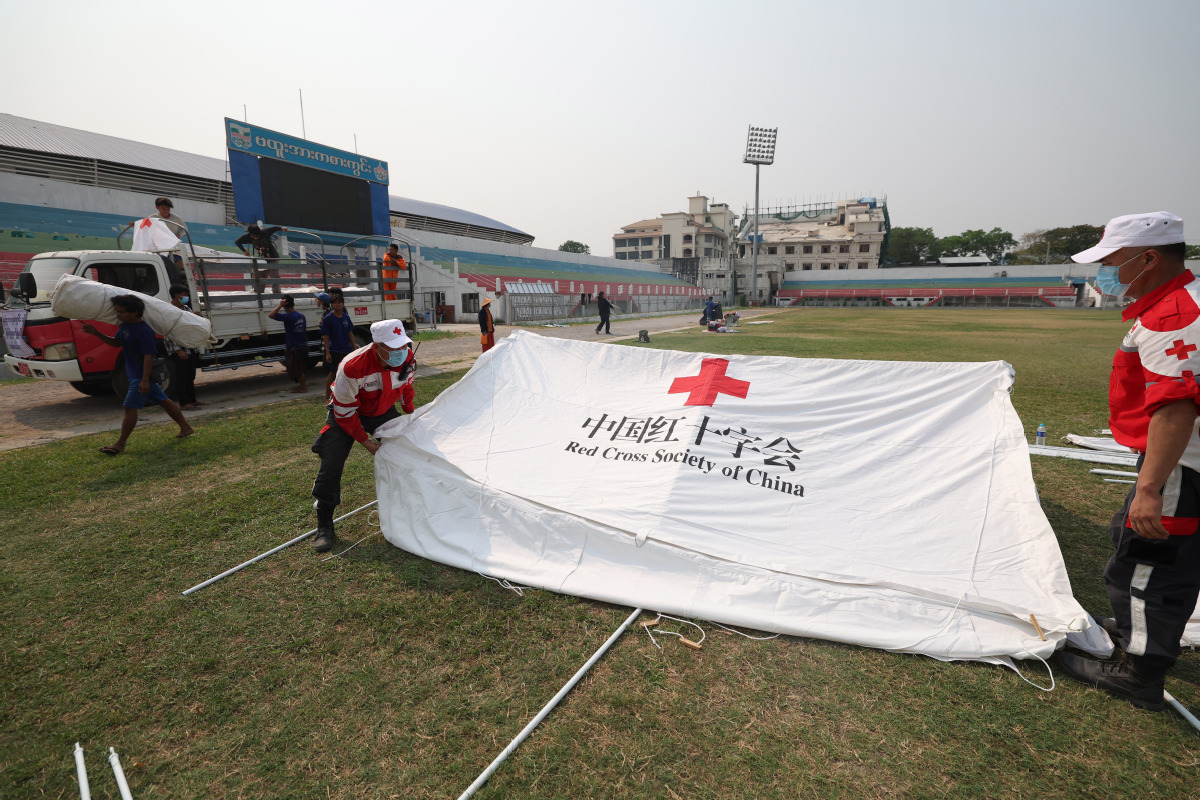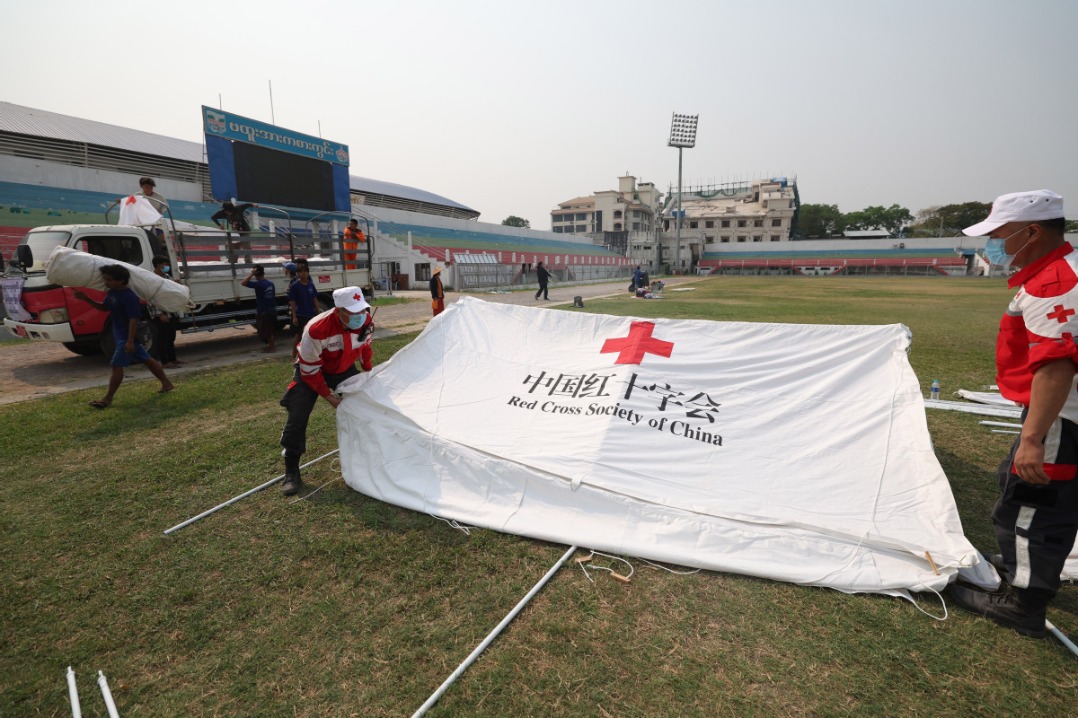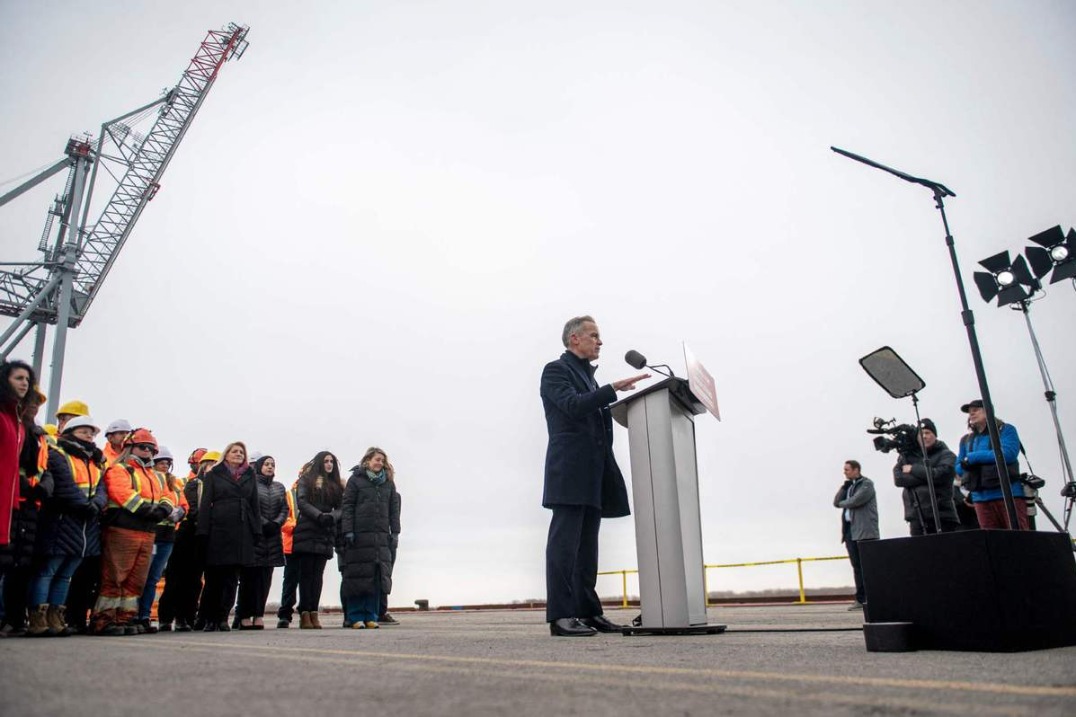Rescue efforts wind down in Myanmar, recovery in focus


BANGKOK — Long-shot efforts to find survivors from Myanmar's devastating March 28 earthquake were winding down on Monday, as rescue efforts were supplanted by increasing relief and recovery activity. The death toll surpassed 3,600 and was still climbing.
A situation report issued on Monday by the United Nations Office for the Coordination of Humanitarian Affairs said more than 17.2 million people are living in the affected areas, and urgently need food, drinking water, healthcare, cash assistance and emergency shelter.
In the capital Nay Pyi Daw, people cleared debris and collected wood from their damaged houses under drizzling rain, and soldiers removed wreckage at some Buddhist monasteries.
Myanmar Fire Services Department said on Monday that rescue teams had recovered 10 bodies from the rubble of a collapsed building in Mandalay, Myanmar's second-biggest city.
It said international rescuers from Singapore, Malaysia and India had returned to their countries after their work to find survivors was considered completed. The number of rescue teams operating in the residential areas of Nay Pyi Daw has been steadily decreasing.
The magnitude 7.9 quake hit a wide swath of the country, causing significant damage to six regions and states. The earthquake left many areas without power, telephone or cell connections and damaged roads and bridges, making the full extent of the devastation hard to assess.
Zaw Min Tun, a spokesman for the State Administration Council, said on Monday that the quake's death toll has reached 3,600, with 5,017 injured and 160 missing. Search and rescue operations involved 1,738 personnel from 20 countries, and had helped find and extract 653 survivors, he said.
The quake has been officially named the Big Mandalay Earthquake to ensure consistency in future documentation and referencing, he added. Previous significant earthquakes also received official names.
The UN report said: "Entire communities have been upended, forcing people to seek shelter in makeshift conditions, disrupting markets, worsening psychosocial distress and bringing essential services — including running water, sanitation and health — to the verge of collapse.
"People left homeless by the earthquakes are exposed to extreme heat during the country's hottest and driest month of the year, and rains have already started in Mandalay — posing an additional threat to those sheltering in the open."
Agencies via Xinhua

































